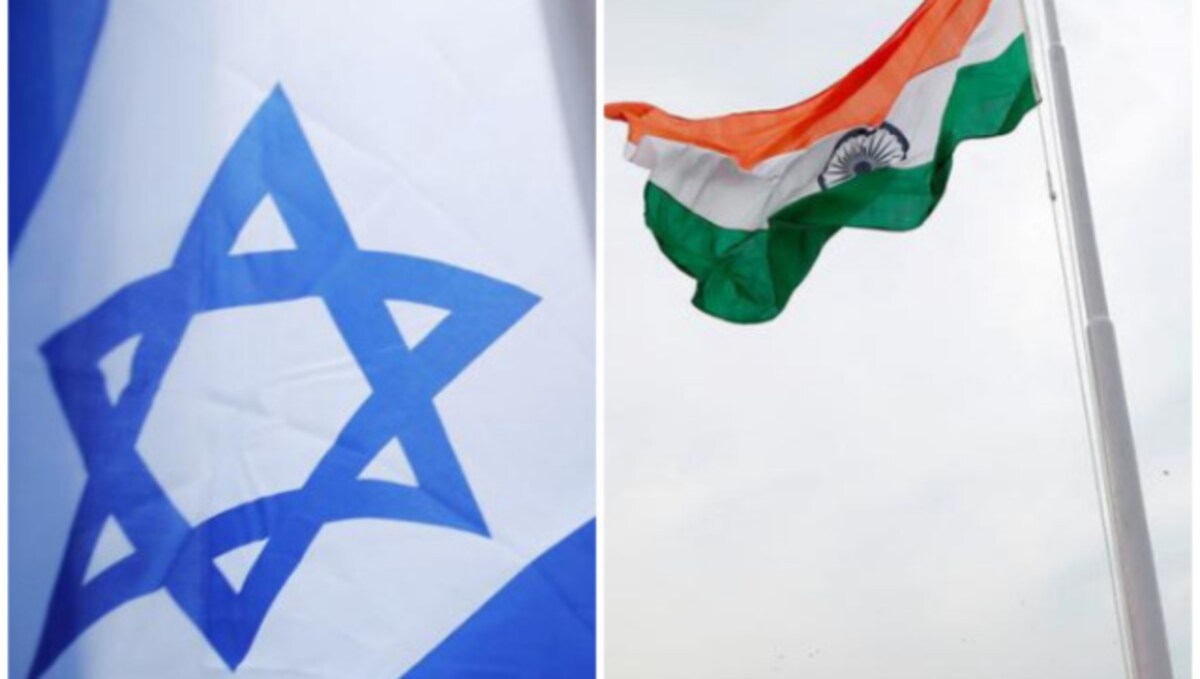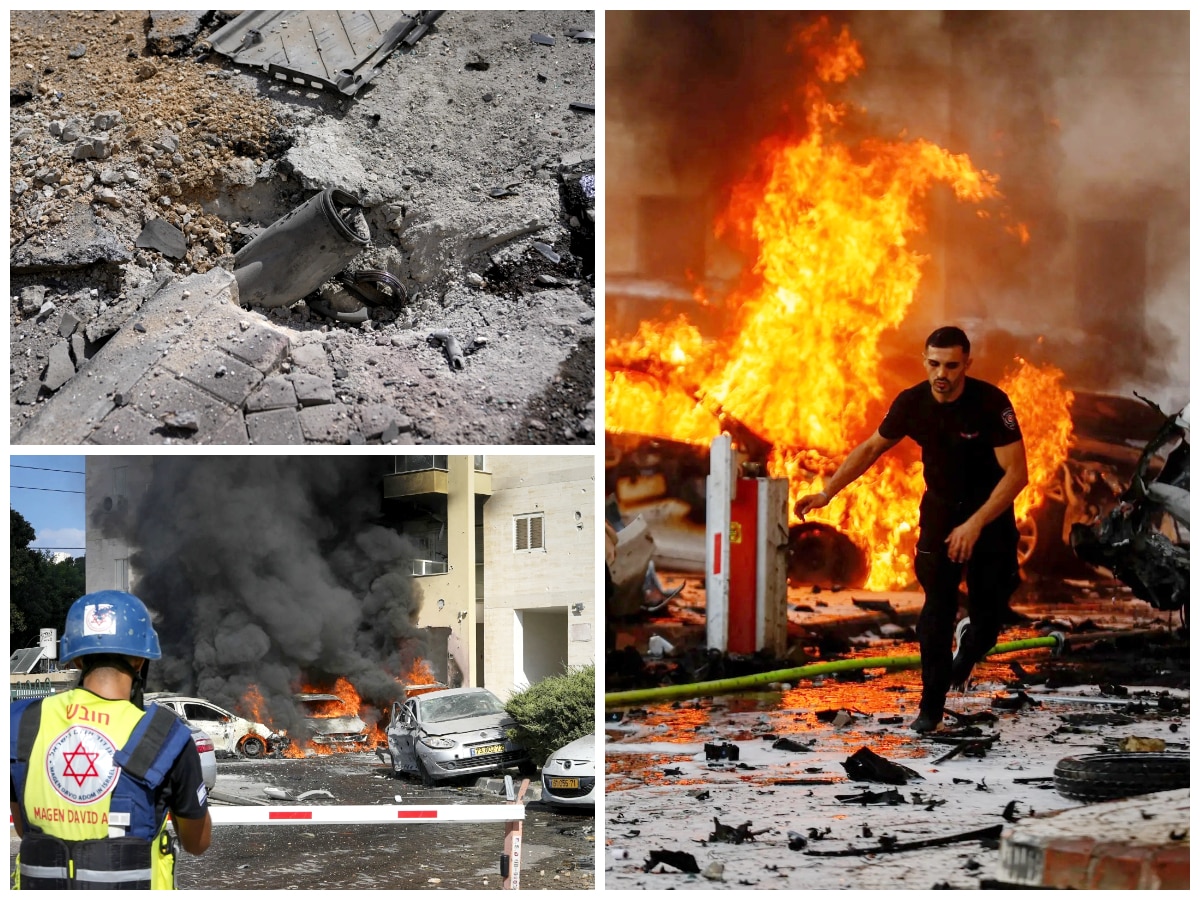Israel-Palestine Tensions: India Must Be On High Alert After Hamas Attack On Israel
Indian Authorities Should Intensify Efforts To Prevent Internal Conflicts Amid Israel-Palestine Tensions After Hamas Attack

Israel-Palestine Tensions: India Must Be On High Alert After Hamas Attack On Israel
In an unprecedented and audacious attack, Hamas, the militant group which controls the Gaza Strip, launched a series of attacks on Israel, which left the whole international community in utter shock. The assault, which various international experts have characterised as the most severe incursion into Israeli territory since the nation’s founding in 1948, has resulted in a rising death toll as well as a humanitarian crisis. In response to these horrific events, Indian Prime Minister Narendra Modi expressed his dismay, labelling these attacks as “terrorist attacks,” and conveyed his “solidarity with Israel.”
The horrifying visuals emerging from Israel depict not just collateral damage, rather also a deliberate targeting of civilians, leading to widespread global condemnation of Hamas and Palestine. The attack, which caught the international community by surprise, saw Hamas terrorists firing thousands of rockets into Israeli territory, resulting in the tragic loss of at least 70 lives and leaving hundreds more injured. The scale and severity of the assault spurred a swift retaliation from Israel, with Israeli Prime Minister Benjamin Netanyahu vowing that Israel’s enemies would face a heavy price for their actions.
India, a strategic partner of Israel, unequivocally condemned and denounced the terrorist attack. Prime Minister Modi took to social media, posting on X (formerly Twitter), “Deeply shocked by the news of terrorist attacks in Israel. Our thoughts and prayers are with the innocent victims and their families. We stand in solidarity with Israel at this difficult hour.” While expressing astonishment and grief, these statements were also interpreted as a clear support for Israel in the continuing crisis.

Although the Ministry of External Affairs has not yet issued a formal statement, Prime Minister Modi’s message of support was heard not only in India but also around the world. Among a number of other nations, the United States as well as the United Kingdom joined India in denouncing these heinous assaults, highlighting the worldwide consensus against acts of violence and terrorism.
On Sunday, Israeli convoy Naor Gilon acknowledged that India enjoys a significant role in the world. It comes from the position of a nation who has the knowledge of terrorism. Therefore, it comes from a position of knowledge and not of ignorance. He also expressed his gratitude to Prime Minister Narendra Modi for showing his support for Israel in such times.
“Our social media is full of people who are showing their support. And we appreciate it. We appreciate it very strongly. I’ll tell you why. Because India, first of all, is a very important country in the world. Secondly, India comes from the position of a country who knows terrorism. So it comes from a point of knowledge and not of ignorance,” he commented only a day after Hamas attacked Israel. “We are heartfelt from the huge support we got from India, from the Prime Minister, through a few ministers who called me, businessmen, civil servants,” Gilon additionally remarked.
While India and several other countries announced their support for Israel, countries such as Saudi Arabia, Qatar, and Iran appeared to be supporting Hamas in the conflict. Pakistan and Afghanistan also expressed their solidarity towards Palestine, urging for an immediate cessation of hostilities.
Hamas leader Ismail Haniyeh launched a daring statement, issuing a clear warning to Arab countries that Israel would not defend them. He stated Hamas’ determination to expand the conflict from Gaza to the West Bank as well as Jerusalem, increasing fears of further escalation in an already volatile and sensitive region.
Despite the rising tensions, voices from diverse places expressed empathy as well as concern for the Palestinian people. Asaduddin Owaisi, the chief of All India Majlis-e-Ittehad-ul-Muslimeen (AIMIM), took to social media, and said via a tweet that, “Praying that peace prevails in the occupied territories of Palestine.” His message reflected the sentiment of many individuals who were standing up for the brutalities against Palestine which have been happening over the years.
In a statement defending Hamas’ attacks, the Palestinian Ministry of Foreign Affairs cited Israel’s disrespect for signed agreements as well as international resolutions. The statement said that the current crisis was brought on by Israel’s refusal to abide by international legitimacy resolutions, which effectively ended the peace process. Social media platforms were buzzing with arguments about the position of Indian Muslims during the present turmoil.
Through a series of controversial statements as well as social media posts, several Indian individuals identifying as liberals have expressed their support for Palestine amidst the ongoing conflict with Israel. These remarks have ignited a fierce debate within the country, reflecting the complexity of international relations and the diverse opinions within the Indian populace.
Delhi Congress Vice President Ali Mehdi, on Wednesday, took to Twitter to express his strong sentiments against Israel, prophesying its destruction. In a tweet, he stated, “Allah will destroy Israel InshaAllah #AllahuAkbar.” Mehdi’s statement has garnered widespread attention and raised concerns about the tone and content of his message.
AIMIM leader Asaduddin Owaisi urged the Indian government to condemn Israel, emphasizing India’s historical support for the idea of an independent Palestinian state. Sharing a video of the conflict, Owaisi stated, “Palestine needs no savior when they have God by their side.” His comments have sparked discussions about India’s foreign policy choices and its stance on the Israel-Palestine conflict.
Salman Nizami, a politician affiliated with the INC and self-proclaimed Gandhian, has also joined the chorus advocating for Palestine. Sharing a video of an air strike, Nizami tweeted, “Their blood is on Israeli hands. We won’t forget! #SavePalestine #PalestinianLivesMatter.” His remarks highlight the emotional response of many Indians to the distressing events in the region.
Sharjeel Usmani, a vocal activist, has called for a boycott of brands like Puma and HP following the Al-Aqsa mosque incident. Usmani’s campaign aims to raise awareness about companies allegedly contributing to the Israeli occupation. He has also endorsed the #DeathToOccupation campaign, advocating for liberation from foreign occupation in both Kashmir and Palestine.
Bollywood actor Swara Bhasker has labeled Israel as an apartheid and terrorist state, echoing a sentiment shared by several global activists. Bhasker’s comments reflect the polarized opinions on the Israeli government’s actions and policies.
Comedian Agrima Joshua weighed in on the conflict, challenging the legitimacy of Israel’s claims. She tweeted, “As Indians who stand for the rights of indigenous people, this occupation. The Zionists’ claim over this land is purely Biblical and that claim has no value. Palestine can’t be made to pay for the unforgivable sins of Europe.” Joshua’s remarks have ignited discussions about historical narratives and the interpretation of religious texts.
The Tipu Sultan Party, registered with the Election Commission of India, has initiated a #BoycottIsrael campaign on social media platforms. Their campaign questions the legitimacy of Israel as a nation and has gained traction among some segments of the Indian population.

The controversy on social media seemed to have sparked by such support given to Palestine by certain Indian Muslims and liberals. While some contend that it is a display of unity against perceived oppression, others express concern over the role that religious beliefs play in issues of international conflict. Many have emphasized the necessity of taking a united front against terrorism and violence as well as emphasised that religion should not be utilized as a source of divisiveness in such circumstances.
Muslim IAS officer Shah Faesal made a noteworthy response by highlighting the value of humanity over religion. According to him, Indian Muslims have never backed up an increase in violence in the region of the Middle East. Every individual’s heart is broken by the horrible images of innocent Israelis being murdered by Hamas at this very moment. Nobody has benefited by terrorism, and the Palestinians will not either.
Faesal’s remark generated a wider discussion and refuted the claim that the conflict was only characterized by religious differences. His viewpoint emphasized the desire for peace that exists across the world and the understanding that using violence simply causes additional suffering for everyone concerned.
Indian Security Forces Should Heighten Vigilance Amidst Israel-Palestine Tensions
Indian security forces, which involves the Intelligence Bureau (IB), Central Police Forces (CPFs), Central Reserve Police Force (CRPF), Rapid Action Force (RAF), as well as State Armed Police Forces, should take immediate and comprehensive action in order to avoid internal religious or regional conflicts in India in response to the rising tensions associated with the Israel-Palestine conflict. These organizations must step up their efforts to protect ethnic harmony as well as intergroup peace because they are aware of the possibility for heightened emotions and polarizing storylines.
A crucial aspect of this strategy involves rigorous monitoring of online social media platforms. The digital sphere has become a breeding ground for extremist ideologies and hate speech. The IB should actively seek to identify and combat sources of hate speech as well as propaganda that encourage terrorist acts through collaboration with other security authorities. Countering anti-national notions which can take advantage of the delicate circumstances created by the Israel-Palestine conflict requires particular focused attention.
Law enforcement organizations need to carefully review social media posts on the issue to make sure that the overall narrative continues to be characterized by peace, empathy, as well as unity. Anything that promotes or encourages encouraging acts of violence or hatred ought to be rapidly identified as well as dealt with in accordance with the provisions of the law. The focus is on responsible online communication aimed at fostering mutual understanding as well as harmony among various communities.
In addition to online monitoring, security forces need to be actively engaged in controlling public rallies as well as protests, if any, particularly those of which are organized by religious communities that may directly or indirectly support international terrorism. These agencies should employ a combination of proactive intelligence gathering, strategic deployment of personnel, as well as swift response mechanisms in order to make sure that any public gatherings remain peaceful and do not incite any type of violence or hatred.

It is imperative for all Indians, regardless of their religious beliefs, to unite against terrorism and unwarranted violence. The recent events highlight the importance of setting aside religious differences as well as standing together as a nation. As the entire global community joins forces in the fight against terrorism, India is also responsible for maintaining a united front, emphasizing the importance of peace, harmony, as well as empathy for all innocent victims, regardless of nationality or religion. By upholding these ideals, India may serve as a beacon of peace in the midst of global conflicts which threaten to divide communities along ethnic and religious boundaries.
In the end, the key to our country’s success lies in our capacity to take full advantage of our diversity while navigating complicated global concerns with intellect and compassion. Let us remain hopeful that the leaders of our nation grasp the serious nature of the situation at hand and endeavour to preserve the togetherness which defines our incredible nation’s identity. Let unity as well as empathy prevail in the midst of these difficult circumstances.




